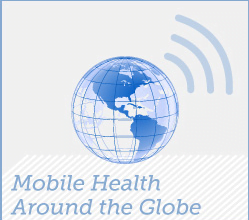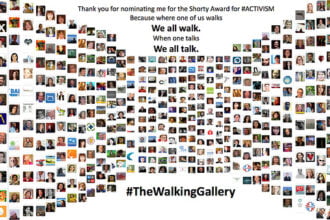 Epion Health is improving the delivery of health care and health education through Smart Screen®. The mounting health literacy dilemmas lead to the development of Smart Screen® which is designed to improve the delivery of patient education at the point of care.
Epion Health is improving the delivery of health care and health education through Smart Screen®. The mounting health literacy dilemmas lead to the development of Smart Screen® which is designed to improve the delivery of patient education at the point of care.
 Epion Health is improving the delivery of health care and health education through Smart Screen®. The mounting health literacy dilemmas lead to the development of Smart Screen® which is designed to improve the delivery of patient education at the point of care. Patients can read educational content from Mayo Clinic, watch videos from HealthiNation and have access to other health information. Below, OneMedRadio interviews Joe Hogan, co-founder and President of Epion Health on Smart Screen as a component of the e-health boom.
Epion Health is improving the delivery of health care and health education through Smart Screen®. The mounting health literacy dilemmas lead to the development of Smart Screen® which is designed to improve the delivery of patient education at the point of care. Patients can read educational content from Mayo Clinic, watch videos from HealthiNation and have access to other health information. Below, OneMedRadio interviews Joe Hogan, co-founder and President of Epion Health on Smart Screen as a component of the e-health boom.
Click below to hear full audio interview and see transcript that follows.
Matthew Margolis: Greetings from OneMedRadio, I’m Matt Margolis. Today, I’m with Joe Hogan, co-founder and President of Epion Health, a healthcare information and electronic solutions company. Epion is producing the Smart Screen health tablet designed for use in the waiting room to connect patients with preloaded medical information apps, digital medical tools, and results of health assessment among other features. Thank you for joining us, Joe.
Joe Hogan: Great to be here, Matt.
MM: So today, we’re going to talk a little bit about the e-health boom and specifically why the healthcare tablet can be a key tool in creating an informed patient population and a more efficient healthcare system. But first, I think we should learn a little bit more about Epion. So what makes Smart Screen unique?
JH: Well, Matt, we are a health information company that is providing a tablet for physicians at the point of care and we’re providing them to physicians for free. Our tablets are designed to give patients the opportunity to learn about their health while they’re in their physician’s offices. It’s an incredibly timely opportunity to learn about your health while you’re waiting to see your physician. The average waiting time for a patient while they’re in their physician’s office is about 35 minutes and there’s no one really currently engaging those patients while they’re there.
Our goal is to provide these tablets to physicians and they’re using them as a tool in two facets of the practice. The first is to educate those patients while they’re sitting there waiting to be engaged and learn about their health. The other thing the physicians are also doing with these tablets is they’re using them as a tool for their own practice to access their EMR. They can use our tablets as an interface to access their own electronic medical records. They can also utilize the tablets as a way to access tools and apps that they use everyday in their practice. So we believe the Smart Screen is very unique and we believe that it provides those tools that are necessary to help improve our healthcare system overall.
MM: So can you go into some detail about some more features on the tablet?
JH: Yeah. So the features on the tablet once the patient picks up the tablet, they’re able to access information from the Mayo Clinic, which is obviously a highly reputable source of information regarding health. There’s also content from Healthy Nation, which is a company that makes objective, nonbiased videos about health and they’re nice small sound bites of three minutes and it helps people learn about cholesterol and diabetes and hypertension and asthma among other conditions.
But in addition to those two offerings, we can provide games for patients to learn about their health in a fun and interactive way. We can distribute coupons and co-pay cards to patients while they’re in the office so that when they get a prescription from their physician they can go to the pharmacy and download a coupon on to their smart phone and redeem that coupon at the local pharmacy. There’s many features as you can imagine in that that you can use, that you can deliver on our tablet and just essentially using the technology that’s available today.
MM: I want to circle back to the concept of the informed patient. Maybe you can go into some detail about why this informed patient is so valuable to the doctor.
JH: We’re in the day and age where patients are either starving for information or they’re looking for – you have the different patient types if you will. Some are very good about going on the internet and being very savvy about their health and others may not embrace that technology quite as much. So we believe that an informed patient is beneficial to the system because there are numerous studies obviously that have shown that a patient that is educated and a patient that is informed is a more engaged patient. Those same studies have shown that an engaged patient saves the system money. There’s also a number of efficiencies to be gained for the physician when they have a higher level of dialogue with the patient while they’re in the office, they can save. That interaction between the physician and the patient, it can save time. So there’s lots of synergies and benefits to be gained from an informed patient from saving money to saving time and those are two of the bigger problems we have on our healthcare system today.
MM: So will Smart Screen be incorporating healthcare information exclusively or will you allow for say sports and entertainment to be included as well?
JH: So it’s all healthcare related information and some of it is in the form of education as I said before the Mayo Clinic and Healthy Nation, educating patients while they’re waiting to see the doctor. Gamification makes it fun and interactive to learn about your health.
We will not be allowing free searches on the internet and allowing patients to just go on any website they wish. Once the patient picks up the tablet, they’ll be within our application and they’ll be going through our modules to help them understand more about their health.
MM: It’s very interesting. Maybe you can talk a little bit about your revenue model.
JH: What we’re doing is we’re providing these tablets to physicians for free and so there’s no risk in it for the physician. We’re monetizing that through sponsorship from insurance companies and from pharmaceutical companies. We’re monetizing it through sponsorship to those parties and among others. I mean there are pharmacies and others that want to be able to communicate messages to patients and to physicians while they’re preparing to have that dialogue with their physician. So there are a number of interested parties that want to be able to communicate messages to patients and we’re essentially monetizing our business model through the sponsorship of content from like I said insurance companies and pharmaceutical companies and pharmacies.
MM: So maybe you can go into some detail about what insurance companies are saying, why are they buying in.
JH: Well as I said before, there have been numerous studies, government studies that have shown that an engaged patient saves the system money. Insurance companies are really interested in making sure that their membership, their members are informed on the conditions that they have, whether it’s high cholesterol, asthma, diabetes, etc. So their motivation in wanting to be involved in what we’re doing is to educate their membership, educate the patients that they pay for at the point of care. They’re hoping through that education that that patient becomes more engaged and costs the system less money. So that’s essentially why the insurance companies, why they want to be involved in what we’re doing and we have engaged a number of insurance companies that are at various levels of dialogue with a number of them.
MM: So circling back to big pharma, what’s the advantage for them?
JH: So big pharma is already spending billions of dollars communicating messages to patients and to physicians either through live discussions through their own sales associates or they’re trying to communicate messages to patients on television. It’s not exactly the most targeted way to communicate a message to individual patients.
We believe and pharma is responding very favorably to our discussions with them regarding the one-to-one dialogue that we can provide to a patient while they’re in their physician’s office. It’s an incredibly timely targeted patient time to be able to communicate your message as a pharma company to a patient who’s about to see their doctor in five minutes and you know that they have cholesterol because they’re in the high cholesterol module and you’re able to communicate messages about your high cholesterol drug for example to that patient.
MM: Now how do you plan to appeal to patient populations that are less tech savvy?
JH: When you pick up our tablet, the first thing that appears is touch here to begin and then they touch that button and it takes them on a journey. It’s really as technologically savvy as a tablet can be. We have tried very hard to make ours not intimidating and so there’s large buttons and large print and a very user-friendly user interface. So the patient experience in our pilots have been very good and they don’t appear to be intimated at all.
In fact in one of our pilots, 97% of patients said that using this tablet helped them have a better dialogue with their physician. So again 97% of patients that used this tablet raved about the ability for this tablet and their interaction on the tablet to improve the dialogue that they have with their physician. So we found a way through our user interface to make this as unintimidating as you possibly can when it comes to technology.
MM: Certainly it is intriguing. So how long before tablets will replace two-week old magazines in the waiting room? Essentially, what is your deployment plan?
JH: Yes. So we would love to be able to launch 50,000 tablets tomorrow it’s just as a startup company that’s going through the funding experience, our deployment plan is very calculated and gated. We’ve done a number of business models to identify the sweet spot of our deployment strategy and our plan is to launch approximately 50,000 tablets by the fourth year of our organization. 10,000 tablets a year is our growth plan and we’d like to have 10,000 tablets in the market by the end of this year. Our deployment plan is to select practices that make sense strategically and to be in those higher profile practices, those that are willing to embrace the tablet concept and deliver value to our payer and pharma partners. So deploying approximately 10,000 tablets per year getting to about 50,000 tablets to the marketplace.
MM: So lastly, what does the future hold for Epion Health?
JH: We feel we’re in a very good position strategically. I have 20 years in the pharma industry myself and left pharma a year and a half ago. I feel very comfortable with our offering and I know that this is where the payers want to be. This is where the pharma companies want to be, to be in a space where we’re providing opportunities to educate patients at the point of care and also provide our partners, our pharma and payer partners, the opportunity to communicate messages to patients at the point of care and deliver a highly targeted, highly selected, timely patient so that they could communicate their messages. We believe that we’re in a very, very good position to deliver on that promise and we’re excited about where we’re at right now.
MM: That was a company snapshot with Joe Hogan, co-founder and president of Epion Health, maker of the Smart Screen tablet for physicians. This is Matt Margolis with OneMedRadio signing off.







